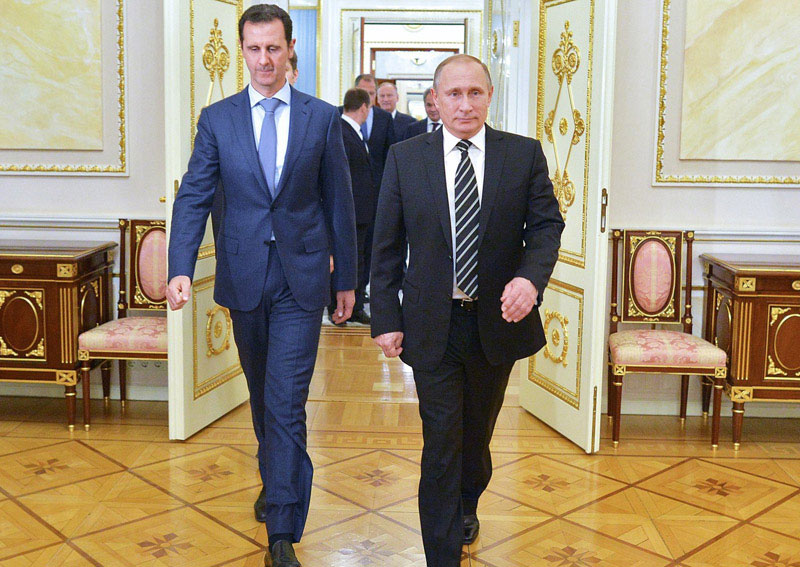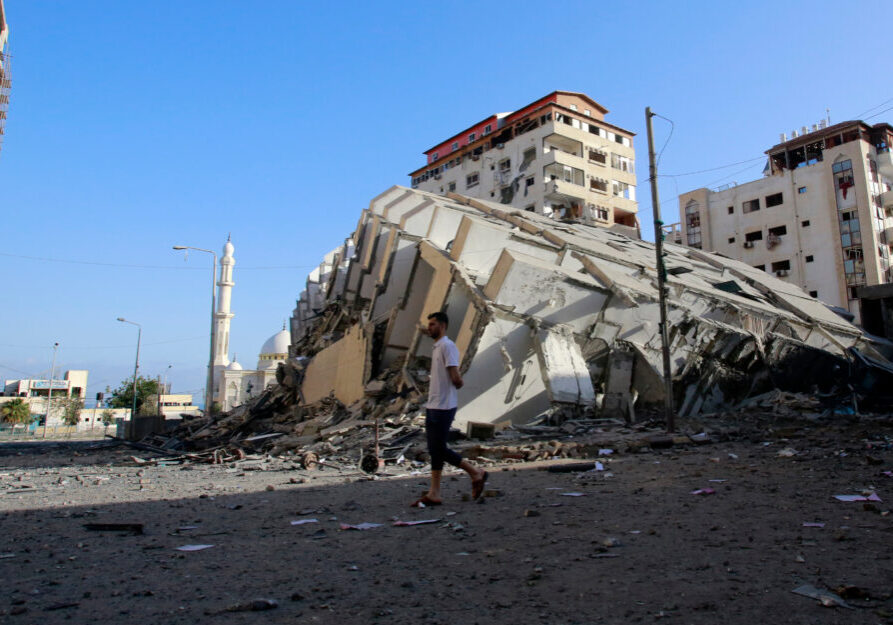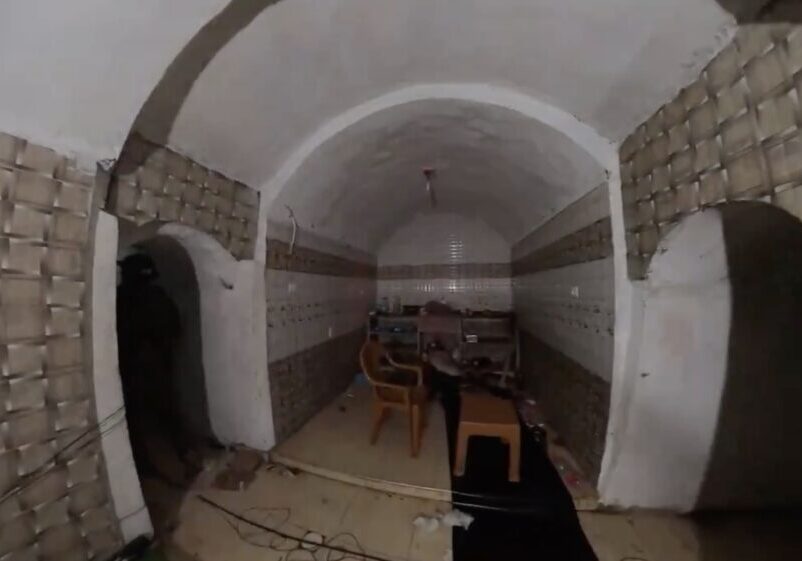Australia/Israel Review
Russia’s Retreat?
Mar 24, 2016 | Amotz Asa-El

Putin again shakes up the region
Amotz Asa-El
He did it again. After having caught the world off guard last fall by diving head-on into the Syrian civil war, Russian President Vladimir Putin has now stunned everyone, even his Syrian clients, by announcing a springtime retreat.
The Kremlin’s statement, made as the five-year-old war’s protagonists prepared for peace talks in Geneva, caps a remarkable display of strategic initiative that Putin is now out to turn into diplomatic profit while others count their losses.
Just what “retreat” consists of remains to be seen.
Russia’s military involvement, while effective, was limited to air strikes, but the expeditionary force of some 4,000 men included ground forces as well. The morning after the announcement, aircraft laden with troops were indeed leaving Syria. However, Russia will clearly retain the airbase it built last year outside the western city of Latakia, not to mention the naval base of Tartus, which it inherited from the USSR. This means that whatever Russia sends back home it can quickly reroute, and whatever belligerency it halts, it can easily resume.
Even so, there is good reason to take the Russian announcement at face value, because Moscow’s overarching aims when it joined the war have been achieved.
First, it saved Assad’s regime, which in the days following Libya’s unraveling seemed numbered. This was Russia’s most urgent goal.
Secondly, Moscow has restored its superpower status, having demonstrated forcefully both its resolve to defend its geostrategic outposts, and its ability to impose its will. The sort of mistake NATO made in Libya, when it effectively ignored Russia while attacking Moscow’s ally, will not be repeated anytime soon.
Third, recalling all too vividly the aftermath of the USSR’s Afghan misadventure, Putin is evidently determined not to repeat its mistakes. That is why he has avoided deploying ground forces, and that is why he is avoiding entrenchment.
Fourth, in its current deployment, the Russian intervention costs more than an annual US$1 billion. Pressured by the two-year-old oil glut, this is a bill the Kremlin does not find easy to foot.
Lastly, Putin does not want the current tension with Turkey to get out of hand. Signaling that Moscow’s “intrusion” – as Ankara sees it – has peaked, will keep this friction in check.
In short, Russia feels that its bombardments have delivered their military results, and now is the time to turn them into diplomatic currency. It is an assessment that Russia’s adversaries now seem to share, leaving it, for now, as the Syrian war’s big winner, and perplexing the other parties, both active and the passive, including Israel.
First of these is the Syrian Government.
Unlike Washington and Jerusalem, which humbly conceded they had no advance inkling of Putin’s move, Damascus put on a brave face and claimed it had been informed and also consulted. It wasn’t.
Putin’s retreat is a major setback for President Bashar Assad, who owes Russia his survival.
Now, however, Assad has overplayed his hand. Shortly before the retreat’s announcement, Assad said he remains resolute to retake all of Syria. Russia responded harshly, through its UN envoy Vitaly Churkin. “I heard President Assad’s remarks on television,” he said, “they do not chime with the diplomatic efforts Russia is undertaking.”
Until then, the Syrian impression was that Russia was out to restore Assad’s prewar realm, clout and legitimacy. Now Russia’s move, fueled by a fragile but surprisingly enduring ceasefire that Moscow brokered, casts doubt on this assessment. The evolving retreat and the reprimand to Assad mean that Russia’s commitment to its Syrian protégé has its limits.
With its aerial and naval foothold along the Syrian coast secure, and with its proxy’s political survival ensured, the rest is apparently negotiable from Moscow’s viewpoint.
Evidently, Russia understands what Assad refuses to understand, namely, that the brutal rule of Syria’s 15% Alawite minority over the mostly hostile other 85% of the population has been proven a bad arrangement that should not be restored.
The Russian move, then, is first and foremost a strategic blow to the Alawites. It is also a setback, albeit on a smaller scale, to Iran and its Lebanese proxy, Hezbollah.
The Russian refusal to reassemble prewar Syria means that the Shi’ite belt Iran hoped would stretch from Teheran to Beirut through Baghdad and Damascus, will not materialise.
Moreover, with Russia appearing ready to accommodate Sunni and also Kurdish gains at Assad’s expense, Iran’s 37-year-old investment in Syria is yielding losses on every front.
Militarily, Iran failed to win the war for Assad and was ultimately sidelined by Putin, despite its proxy Hezbollah’s loss of some 1,500 fatalities and 3,500 wounded – together a third of the Lebanese militia’s original fighting force – besides some 300 Iranians, including several generals, who got killed in Syria.
Financially, Iran has shipped to Syria oil for interest-free loans and at one point also put cash in the Bank of Syria’s rapidly emptying coffers, all of which added up to billions that it is doubtful will ever be repaid.
And diplomatically, Teheran is now compelled to make way as Moscow takes the lead in shaping postwar Syria while bearing in mind Russia’s own predominantly Sunni Muslim population, and Teheran’s own plans to buy Russian arms.
Still, Iran’s setbacks pale compared with Turkey’s.
The war has swamped Turkey with more than 2 million refugees, given its Kurdish insurgency a Syrian hinterland and inspiration, and pitted Ankara against Moscow and Teheran. Russia’s latest move means that the Syrian government Turkey vowed to remove may remain intact, but that the Assad regime’s disempowerment will not be Turkey’s doing, but Russia’s.
In other words, Turkey’s aim of becoming the patron of a reconstructed Syria now emerges as frustrated as Iran’s original aim of becoming a restored Syria’s patron.
The Russian retreat also casts a shadow over American diplomacy.
What began with an unfulfilled vow to attack Syria for using chemical weapons, and was then followed by an Egyptian-Russian arms deal for the first time since the 1970s, is now punctuated by Moscow’s unfolding replacement of Washington as the regional power broker.
The region-wide impression that Moscow initiates and Washington responds, that the Kremlin impacts while the White House talks, and that Russia does not abandon allies the way Obama abandoned Egypt’s Hosni Mubarak, will constitute a major diplomatic challenge for the next American President.
The Russian move is also a setback for the Syrian rebels, who only a year ago seemed well positioned to inherit, albeit amid much more fighting, Assad’s broken estate.
The unfolding aftermath of Russia’s intrusion in the Syrian rebellion condemns them to a future in the shadows of a Russian-backed Alawite nemesis.
Finally, there is the Islamic State.
Conditions are now ripe for a major attack on the fundamentalist polity that sprouted from the debris of Assad’s failed state and his enemies’ failed revolt. Suffering from the military vulnerability of the flat terrain that ISIS inhabits, the already effective attacks it faces daily from European and American bombers may soon be forcefully joined by Russia, and followed by ground attacks it will not survive.
Russia would like to be recognised as the power that decided the war on ISIS. It is a role Brussels and Washington may grant Moscow, albeit grudgingly, in the hope of thus ending the mayhem that has dismembered Syria, destabilised Turkey, and unsettled Europe with a refugee influx.
Just how smoothly all this will unfold is of course anyone’s guess, particularly considering that Putin expects Europe and America to ease the sanctions they have imposed following his annexation of Crimea.
Still, from Israel’s viewpoint, the new situation’s risks and opportunities seem clear.
The big risk lies between Hezbollah and its Iranian masters. Though seriously hurt, the Shi’ite Lebanese organisation, if its troops return from Syria, may be tempted to seek a new clash with Israel, something that hasn’t happened for nearly a decade.
Owning thousands of rockets that reportedly can reach not only the Galilee and Haifa, as they did in the past, but also Jerusalem and Tel Aviv, Hezbollah may be tempted to activate that potential once freed from the burden of the Syrian war.
A major factor in this regard will be Iran, whose approval Hezbollah is believed to obtain before doing anything. Israel cannot assume that the Iranian leaders who crafted the nuclear deal with the US will be deterred from creating trouble along Israel’s borders.
Also on the negative side, a rearranged Syria with a newly empowered Sunni majority may prove to be no less anti-Israeli than Assad – and possibly even worse.
On the positive side, the Syrian army, which until five years ago posed a central threat to Israel’s security, is now crippled.
The war also made Egypt, Jordan and the Gulf states appreciate Israel as a regional stabiliser, and as an ally in their confrontation with Islamism. The war also made Ankara reconsider its anti-Israeli U-turn last decade, reminding it that what threatens Turkish interests comes frequently from the Arab countries and never from the Jewish state.
All these gains remain intact in the immediate wake of the Russian retreat, but will not necessarily remain in its aftermath. That is why Jerusalem’s relationship with Moscow is now more sensitive and crucial than at any point since the renewal of diplomatic ties on the eve of the Soviet Union’s dissolution in 1991.
Israel, which also has to consider the state of Russia’s Jewish community, has been careful to avoid Turkey’s mistake of tangling with the Russian bear. If anything, Jerusalem chose the opposite path, going out of its way to show Moscow its respect, most notably in breaking with the Western line on Ukraine, and maintaining a policy of neutrality.
Israeli and Russian generals also regularly met to coordinate their aerial operations in the Syrian theatre, and thus avoid accidents and misunderstandings. The cooperation worked well, even when Israeli jets reportedly intercepted Iranian arms shipments en route to Hezbollah’s camps.
Israel therefore hopes that Russia will use its new clout to block Iranian adventurism in general, and at the Jewish state’s expense in particular.
As a matter of fact, Russia is now in a position to try to promote dialogue between Israel and some of its enemies, a prospect that may have come up when Israeli President Reuven Rivlin, by sheer coincidence, arrived in the Kremlin for a state visit 48 hours after its announcement of the Syrian retreat.
In the meeting, which lasted three hours, Rivlin asked that the coordination mechanism between the IDF and the Russian army continue its operation despite the retreat, and that Russia also work to restore the UN peace keeping force that until the war buffered between Israel and Syria. Putin agreed to both requests.
The importance Israel now ascribes to Russia was reflected in its acceptance of Putin’s short-notice invitation, even though it collided with Rivlin’s previously scheduled visit to Australia.
After consulting with Netanyahu, Rivlin apologised to the Government of Australia for his postponement of the journey to Canberra – which greatly irked Australian officials. However, Israeli pundits believe Jerusalem had little choice in the face of a diplomatic situation created by the Russians, possibly deliberately, at a moment when Israel’s national interest demands extreme caution in dealing with Russia.
The role of peacemaker which Putin is now in a position to play is hardly what his international image currently evokes. Nonetheless, the world opinion that does not expect him to pacify enemies is the same world opinion that did not expect him to intervene in Syria last year, or to retreat from it now.
This article is featured in this month’s Australia/Israel Review, which can be downloaded as a free App: see here for more details.






